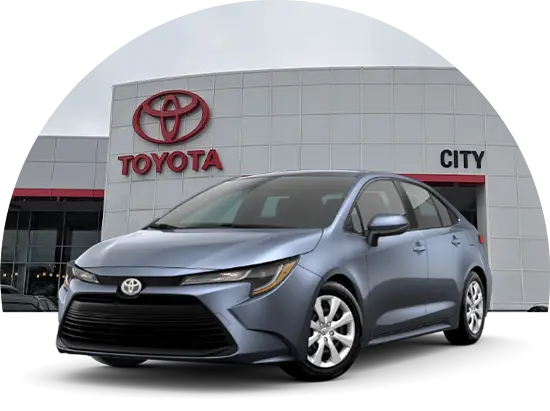In a period where ecological issues are paramount, car manufacturers are under boosting stress to decrease their carbon footprints and welcome cleaner, more lasting modern technologies. Among the leaders in this movement is Toyota, a firm that has long been dedicated to driving modification via cutting-edge, environment-friendly services. With a strong vision for the future, Toyota is functioning non-stop towards attaining no exhausts, setting the phase for a cleaner, extra lasting transport system.

Toyota's Vision for a Carbon-Free Future. At the heart of Toyota's ecological approach is its objective to accomplish carbon neutrality by 2050. This ambitious target is main to the company's efforts to lower the environmental effect of its automobiles and producing processes. By embracing zero-emission modern technologies, Toyota is not just attending to the challenges of environment modification-- it's leading the cost toward a cleaner, greener future for generations to find.
Toyota acknowledges that accomplishing carbon nonpartisanship needs a multi-faceted strategy. The firm's method surpasses simply making zero-emission vehicles (ZEVs); it consists of enhancing the sustainability of its entire supply chain, reducing power consumption in production, and locating new ways to minimize discharges at every step of an automobile's life process. Toyota is functioning to incorporate environmentally friendly materials, eco-friendly energy, and reusing innovations into all elements of its procedures to lessen its environmental effect.
Zero-Emission Technologies: The Future of Movement. Toyota has already made considerable strides in the development of zero-emission modern technologies, consisting of battery electric cars (EVs) and hydrogen gas cell vehicles (FCVs) The business's Toyota Mirai, a hydrogen-powered vehicle, is among one of the most noticeable examples of its commitment to zero-emissions movement. With the capability to produce zero tailpipe exhausts, the Mirai works on hydrogen, releasing just water vapor as a byproduct.
Hydrogen fuel cell technology represents an encouraging option to standard gasoline engines and even battery-electric vehicles in specific markets. The benefit of hydrogen exists in its capability to provide longer driving varieties and brief refueling times compared to numerous current EVs, making it an optimal service for long-distance travel and commercial transport. Toyota is investing heavily in expanding the schedule of hydrogen refueling terminals, making the transition to gas cell vehicles more feasible for consumers worldwide.
In enhancement to hydrogen, Toyota is also expanding its schedule of battery electrical lorries (EVs) These fully electric lorries feature sophisticated modern technologies, smooth styles, and zero-emission capacities, better cementing Toyota's dedication to decreasing exhausts and promoting sustainability.
Lasting Production and Green Advancement. Toyota's dedication to zero exhausts exceeds simply the automobiles it creates; it includes the method the firm produces them. Toyota has applied a number of sustainable practices in its production plants to reduce power usage, water consumption, and waste. The business is progressively counting on renewable power sources to power its worldwide manufacturing centers, which helps in reducing the carbon footprint of its production processes.

Additionally, Toyota is constantly functioning to enhance the recyclability of its cars. The business is investigating ways to include even more sustainable materials right into its cars, such as bio-based plastics and recyclable steels, which will certainly additionally lower the ecological influence at the end of an automobile's life. By utilizing less basic materials and maximizing the reuse of sources, Toyota aims to minimize the general ecological impact of its lorries throughout their lifecycle.
The Roadway Ahead: Broadening Zero-Emission Framework. Attaining no exhausts isn't nearly constructing the ideal automobiles-- it's also about producing the framework necessary to sustain them. Toyota is actively associated with the growth of charging terminals and hydrogen refueling networks to ensure that its zero-emission automobiles have the sources they require to operate successfully. The company is functioning with federal governments, private companies, and various other automakers to produce a considerable network of charging factors for electrical lorries and hydrogen terminals for fuel cell cars.
The development of this framework is necessary for making zero-emission vehicles more obtainable and functional for consumers. As Toyota continues to blaze a trail in zero-emission movement, it is additionally buying partnerships and cooperations that will aid accelerate the adoption of clean transport worldwide.
Final thought. Toyota's dedication to no exhausts represents a strong and transformative shift in the automotive market. With a clear vision for a carbon-neutral future, Toyota is purchasing a diverse range of zero-emission technologies, including battery electrical vehicles and hydrogen gas cell automobiles, to develop a cleaner, greener globe. The business's efforts to improve the sustainability of its manufacturing processes and broaden zero-emission facilities more show its commitment to driving change and lowering its ecological effect.
As Toyota remains to innovate and push the borders of lasting wheelchair, the roadway to a zero-emission future is ending up being clearer. The company's dedication to carbon neutrality and its pioneering operate in eco-friendly modern technologies will certainly not only benefit consumers but will certainly likewise play a critical function in assisting to alleviate the results of climate adjustment and minimize the vehicle market's ecological footprint. With its vibrant vision and constant drive for development, Toyota is genuinely driving adjustment-- and blazing a trail toward a cleaner, more sustainable globe.
Navigation
Latest Posts
Discover Modern Nissan of Winston-Salem's Top Deals
Find Your Dream Car at CDJR of Walla Walla
Drive the Best with Modern Toyota of Asheboro
